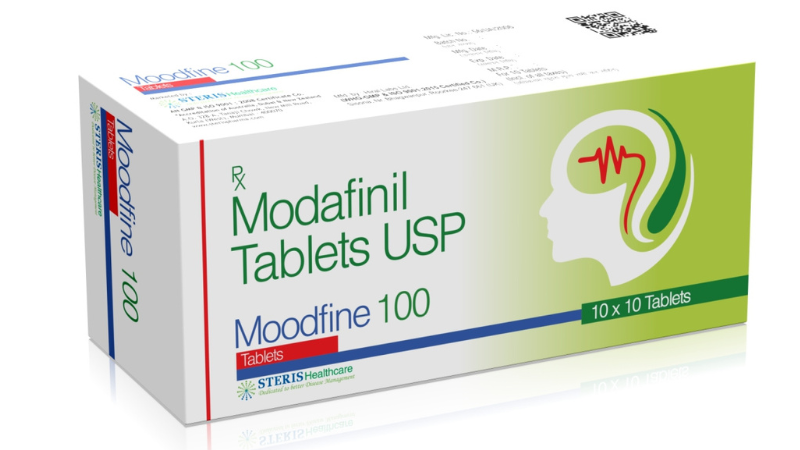Modafinil is a prescription medication commonly used to treat sleep disorders, including narcolepsy, obstructive sleep apnea, and shift work sleep disorder. It’s known for its wakefulness-promoting properties and is sometimes used off-label for other purposes. Here’s a detailed overview of its uses, side effects, and other important information:
Uses
- Narcolepsy: Modafinil helps manage excessive daytime sleepiness associated with narcolepsy, a condition characterized by sudden and uncontrollable episodes of sleep.
- Obstructive Sleep Apnea (OSA): It can be used as an adjunct to continuous positive airway pressure (CPAP) therapy to reduce daytime sleepiness in individuals with OSA.
- Shift Work Sleep Disorder: For people who work non-traditional hours or night shifts, modafinil can help reduce sleepiness and improve alertness during waking hours.
How It Works
Modafinil is a wakefulness-promoting agent, though its exact mechanism of action is not fully understood. It is thought to work by affecting certain neurotransmitters in the brain, including dopamine, norepinephrine, and serotonin, which play a role in regulating wakefulness and alertness.
Dosage and Administration
- Forms: Modafinil is typically available in tablet form.
- Dosage: The usual dose for treating narcolepsy or OSA is 200 mg once daily in the morning. For shift work sleep disorder, the dose is generally 200 mg taken approximately 1 hour before the start of the work shift.
- Administration: It’s usually taken orally with or without food.
Side Effects
Common side effects may include:
- Headache: A common issue for those taking modafinil.
- Nausea: Some people may experience gastrointestinal discomfort.
- Nervousness and Anxiety: Modafinil can sometimes cause feelings of nervousness or anxiety.
- Insomnia: As a wakefulness-promoting agent, it may affect sleep patterns if taken too late in the day.
Serious side effects can include:
- Severe Skin Reactions: Rare but serious skin reactions like Stevens-Johnson syndrome (SJS) can occur.
- Cardiovascular Issues: Modafinil may increase blood pressure or heart rate in some individuals.
- Psychiatric Symptoms: Rare cases of psychiatric symptoms, including hallucinations, mania, or aggression, have been reported.
Warnings and Precautions
- Drug Interactions: Modafinil can interact with other medications, including some antidepressants, anticonvulsants, and oral contraceptives. It may also affect the efficacy of certain medications.
- Medical Conditions: Individuals with a history of heart disease, high blood pressure, liver or kidney problems, or psychiatric disorders should use modafinil with caution.
- Pregnancy: Modafinil should be used during pregnancy only if clearly needed, as its effects on the fetus are not well-studied.
Considerations
- Dependency and Abuse: Modafinil is generally considered to have a lower potential for abuse compared to stimulants like amphetamines, but misuse is possible, especially in people with a history of substance abuse.
- Tolerance: Long-term use may lead to tolerance, where the medication becomes less effective over time.
Always use modafinil as prescribed by your healthcare provider and report any unusual or severe side effects. If you have any pre-existing conditions or are taking other medications, discuss these with your healthcare provider to avoid potential interactions.


Reviews
There are no reviews yet.